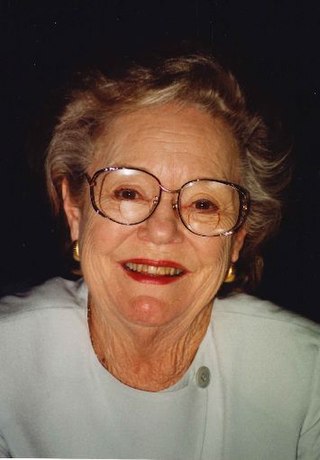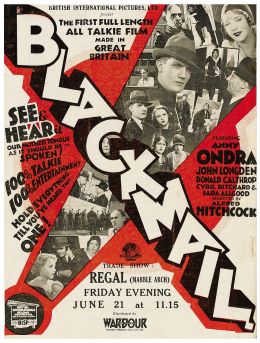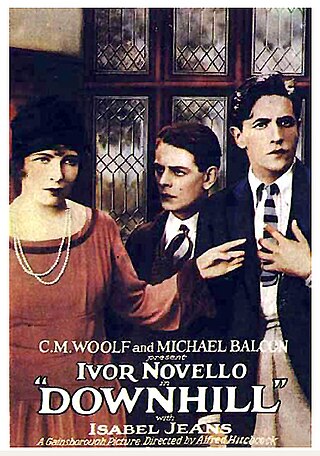Related Research Articles

Sir Alfred Joseph Hitchcock was an English film director. He is widely regarded as one of the most influential figures in the history of cinema. In a career spanning six decades, he directed over 50 feature films, many of which are still widely watched and studied today. Known as the "Master of Suspense", Hitchcock became as well known as any of his actors thanks to his many interviews, his cameo appearances in most of his films, and his hosting and producing the television anthology Alfred Hitchcock Presents (1955–65). His films garnered 46 Academy Award nominations, including six wins, although he never won the award for Best Director, despite five nominations.

Patricia Alma Hitchcock O'Connell was an English-American actress and producer. She was the only child of English director Alfred Hitchcock and film editor Alma Reville, and had small roles in several of her father's films, with her most substantial appearance being in Strangers on a Train (1951).

Alma Lucy Reville, Lady Hitchcock was an English screenwriter and film editor. She was the wife of film director Alfred Hitchcock. She collaborated on scripts for her husband's films, including Shadow of a Doubt, Suspicion, and The Lady Vanishes, as well as scripts for other directors, including Henrik Galeen, Maurice Elvey, and Berthold Viertel.

Blackmail is a 1929 British thriller directed by Alfred Hitchcock and starring Anny Ondra, John Longden, and Cyril Ritchard. Based on the 1928 play of the same name by Charles Bennett, the film is about a London woman who is blackmailed after killing a man who tries to rape her.

Rebecca is a 1940 American romantic psychological thriller film directed by Alfred Hitchcock. It was Hitchcock's first American project, and his first film under contract with producer David O. Selznick. The screenplay by Robert E. Sherwood and Joan Harrison, and adaptation by Philip MacDonald and Michael Hogan, were based on the 1938 novel of the same name by Daphne du Maurier.

Downhill is a 1927 British silent drama film directed by Alfred Hitchcock, starring Ivor Novello, Robin Irvine and Isabel Jeans, and based on the play Down Hill by Novello and Constance Collier. The film was produced by Gainsborough Pictures at their Islington studios. Downhill was Hitchcock's fourth film as director, but the fifth to be released. Its American alternative title was When Boys Leave Home.
Number Seventeen is a 1932 British comedy thriller film directed by Alfred Hitchcock and starring John Stuart, Anne Grey and Leon M. Lion. The film, which is based on the 1925 burlesque stage play Number Seventeen written by Joseph Jefferson Farjeon, concerns a group of criminals who commit a jewel robbery and hide their loot in an old house over a railway leading to the English Channel. The film's title is derived from the house's street number.

Murder! is a 1930 British thriller film co-written and directed by Alfred Hitchcock and starring Herbert Marshall, Norah Baring and Edward Chapman. Written by Hitchcock, his wife Alma Reville and Walter C. Mycroft, it is based on the 1928 novel Enter Sir John by Clemence Dane and Helen Simpson. It was Hitchcock's third all-talkie film, after Blackmail (1929) and Juno and the Paycock (1930).

Brenda Doreen Mignon de Banzie was a British actress of stage and screen.

The Man Who Knew Too Much is a 1934 British spy thriller film directed by Alfred Hitchcock, featuring Leslie Banks and Peter Lorre, and released by Gaumont British. It was one of the most successful and critically acclaimed films of Hitchcock's British period.

Mary (1931) is a British-German thriller film, directed by Alfred Hitchcock, and is the German-language version of Hitchcock's Murder! (1930), shot simultaneously on the same sets with German-speaking actors. The film is based on the 1928 book Enter Sir John by Clemence Dane and Helen Simpson, and stars Alfred Abel and Olga Chekhova. Miles Mander reprises his role as Gordon Druce from Murder!, though the character's name was changed to Gordon Moore.

The 39 Steps is a 1935 British spy thriller film directed by Alfred Hitchcock, starring Robert Donat and Madeleine Carroll. It is loosely based on the 1915 novel The Thirty-Nine Steps by John Buchan. It concerns a Canadian civilian in London, Richard Hannay, who becomes caught up in preventing an organisation of spies called "The 39 Steps" from stealing British military secrets. Mistakenly accused of the murder of a counter-espionage agent, Hannay goes on the run to Scotland and becomes tangled up with an attractive woman, Pamela, while hoping to stop the spy ring and clear his name.

The Lady Vanishes is a 1938 British mystery thriller film directed by Alfred Hitchcock, starring Margaret Lockwood and Michael Redgrave. Written by Sidney Gilliat and Frank Launder, based on the 1936 novel The Wheel Spins by Ethel Lina White, the film is about an English tourist travelling by train in continental Europe who discovers that her elderly travelling companion seems to have disappeared from the train. After her fellow passengers deny ever having seen the elderly lady, the young woman is helped by a young musicologist, the two proceeding to search the train for clues to the old lady's disappearance.

The Spanish Jade is a 1922 British silent drama film directed by John S. Robertson. Alfred Hitchcock is credited as a title designer. The film is considered to be lost. It was shot at Islington Studios in London by the British subsidiary of Paramount Pictures. The story had previously been made into a 1915 film of the same title.
The Skin Game is a 1921 British-Dutch silent drama film adapted from the 1920 play by John Galsworthy and directed by B. E. Doxat-Pratt.
John Henry Graham Cutts, known as Graham Cutts, was a British film director, one of the leading British directors in the 1920s. His fellow director A. V. Bramble believed that Gainsborough Pictures had been built on the back of his work.

Lord Camber's Ladies (1932) is a British drama film directed by Benn W. Levy, produced by Alfred Hitchcock, and starring Gerald du Maurier, Gertrude Lawrence, Benita Hume, and Nigel Bruce.

Woman to Woman is a 1923 British silent drama film directed by Graham Cutts, with Alfred Hitchcock as the uncredited assistant director and co-screenwriter. The film was the first of three adaptions of the 1921 play Woman to Woman by Michael Morton. To capitalise on the success of the film, Cutts and Hitchcock made another film, The White Shadow, with Compson before she returned to the United States.

The White Shadow, also known as White Shadows in the United States, is a 1923 British drama film directed by Graham Cutts and starring Betty Compson, Clive Brook, and Henry Victor.
The Farmer's Wife is a romantic comedy play by the British writer Eden Phillpotts, based on the scenario of his novel Widecombe Fair (1913). It was first staged in Birmingham in 1916. Its London premiere was at the Royal Court Theatre in 1924. By 1926 when Laurence Olivier went on tour in the lead role, the play had already been performed 1,300 times.
References
- ↑ Low p.411
- 1 2 "Alfred Hitchcock Collectors' Guide: Miscellaneous British Films". Brenton Film. 15 September 2018.